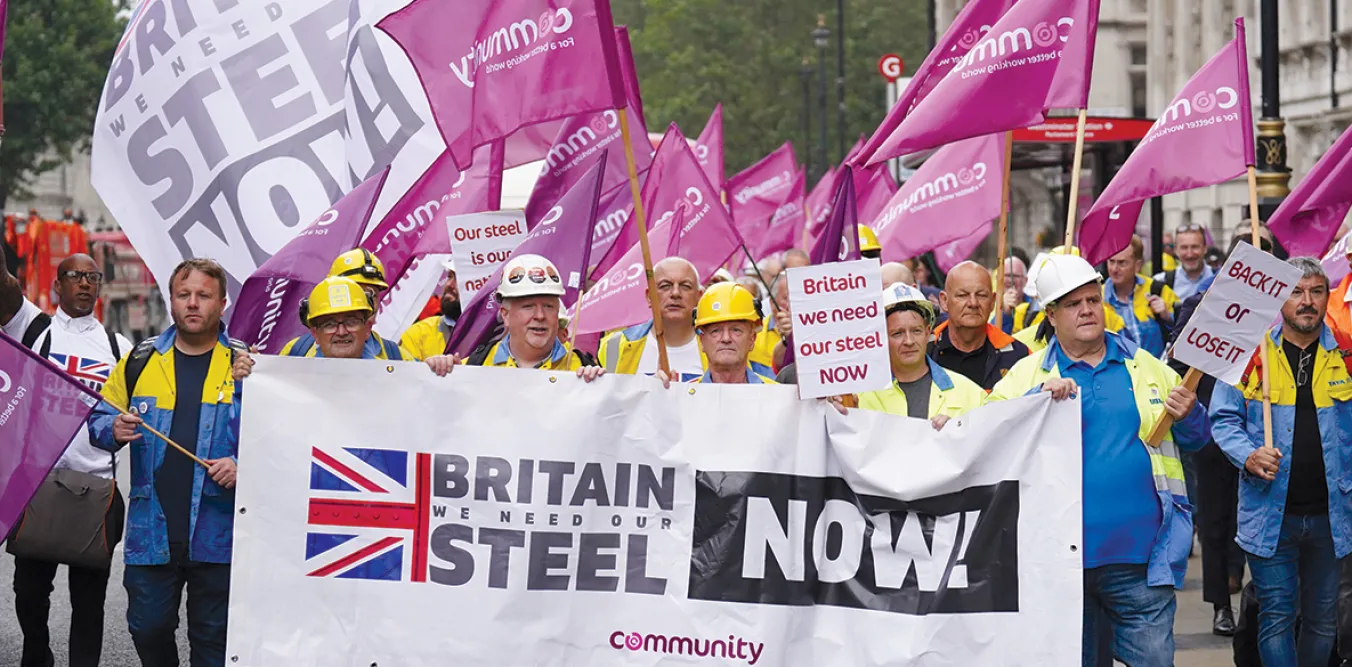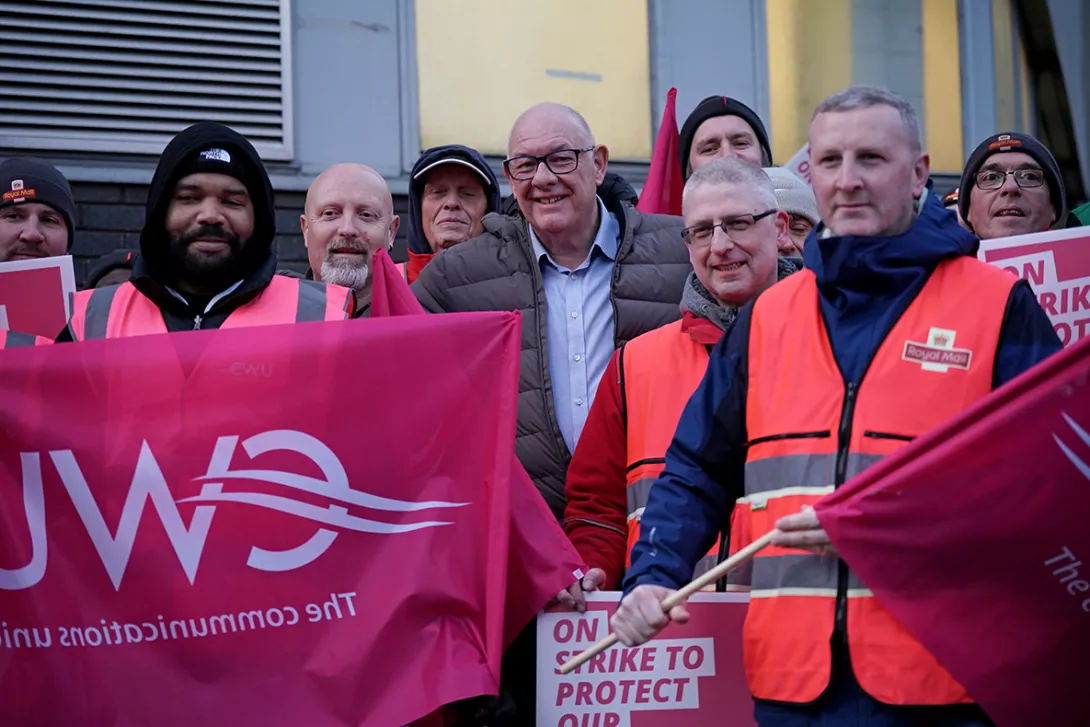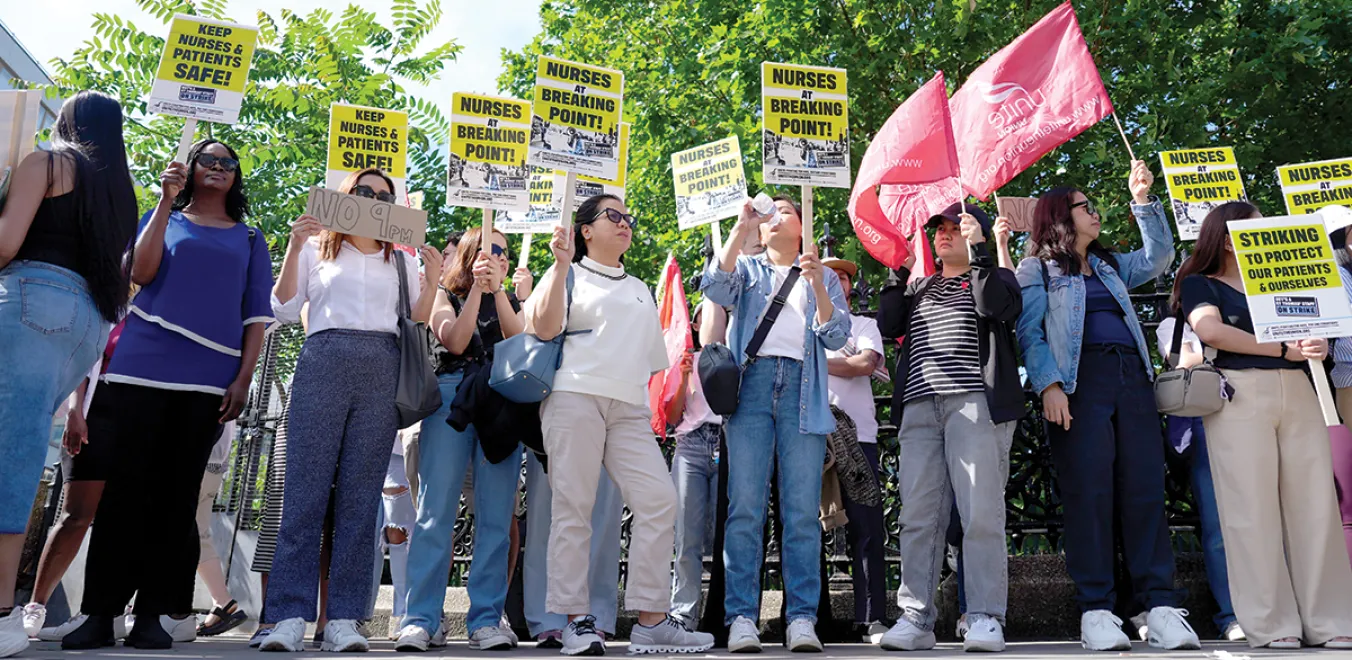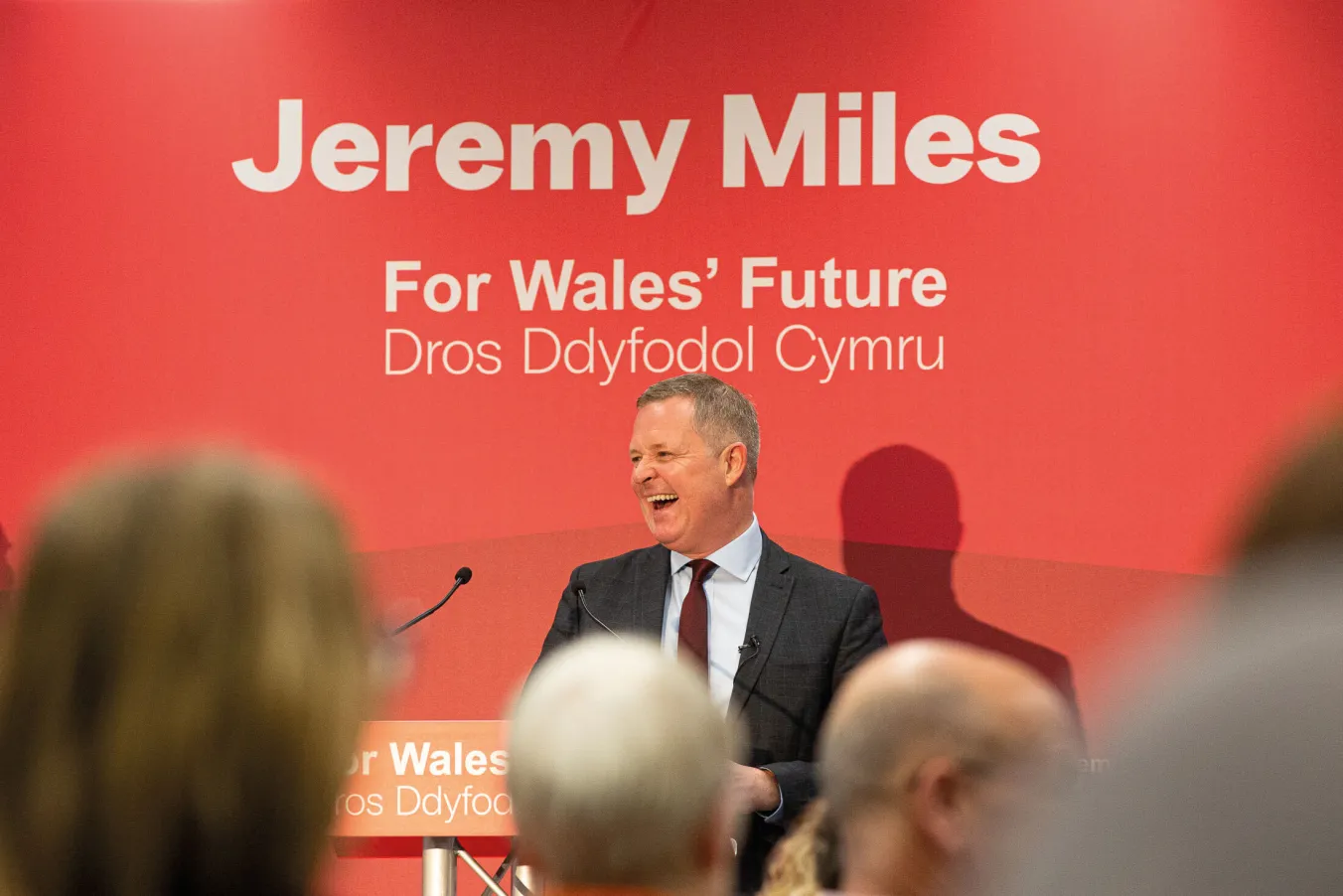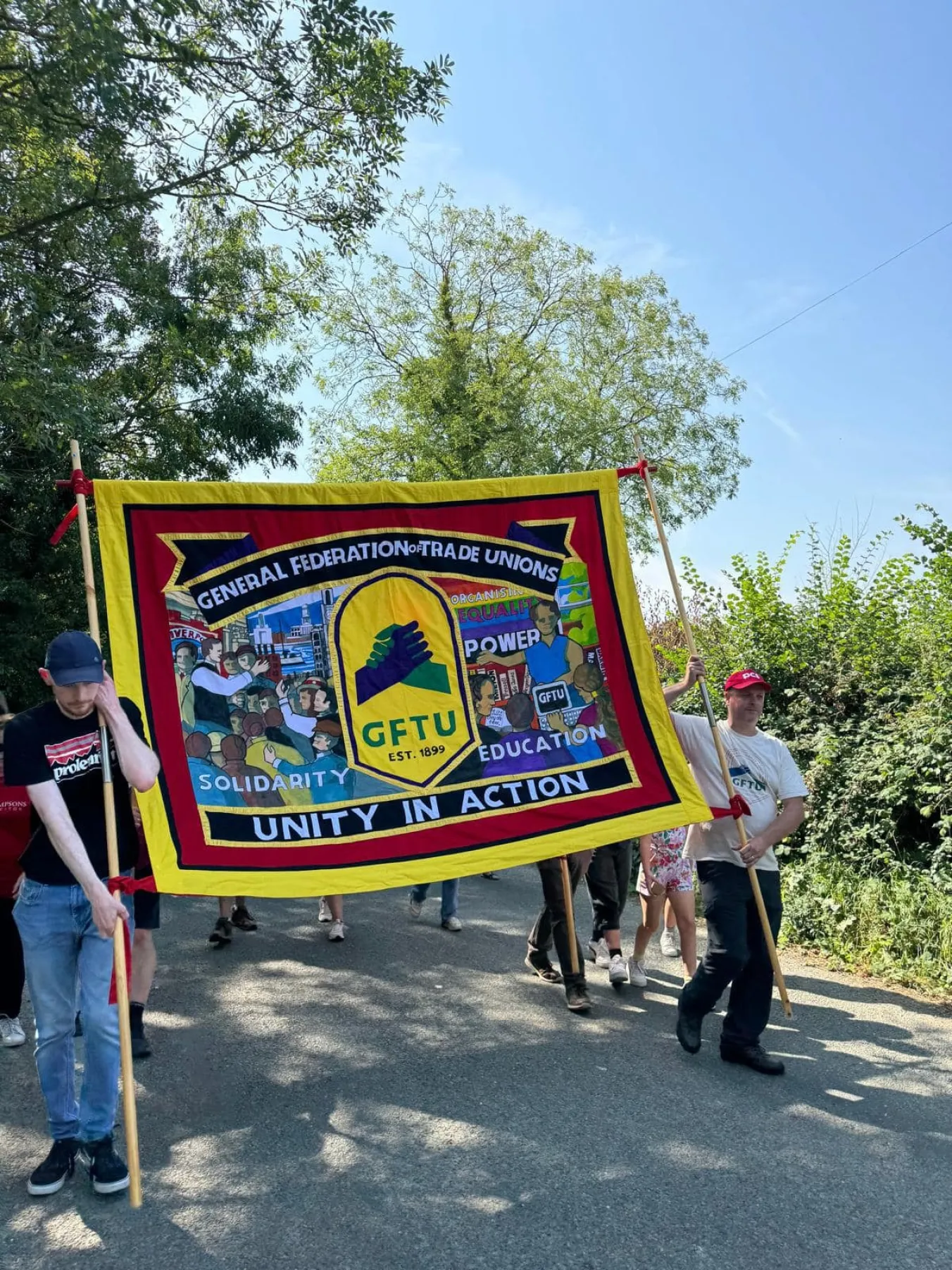
AS we debate in this year’s TUC Congress — the workers’ parliament — our trade union movement is at a watershed moment.
With the election of a new Labour government just two months ago, after 14 years of Conservative-led governments that have attacked our living standards, broken our public services and further deindustrialised our economy, we face huge opportunities.
These opportunities are further enhanced by the commitment of the incoming government to introduce a number of positive individual rights for workers and also collective rights for workers and their unions, including repeal of the 2023 and 2016 anti-union laws, introducing electronic and workplace balloting rights, and a limited statutory framework for sectoral collective bargaining.



